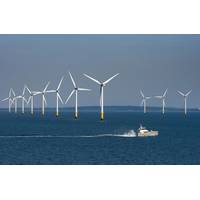Azeri Shah Deniz Gas Project Awards Subsea Contracts
Norway's FMC Kongsberg Subsea AS and Britain's OneSubsea (UK) Ltd have won contracts for subsea infrastructure totalling $363 million for Azerbaijan's Shah Deniz gas field.
A consortium led by BP said it awarded the construction contracts to help develop the Shah Deniz II project under the Caspian Sea, which offers Europe a chance to reduce reliance on Russian gas.
Shah Deniz, Azerbaijan's biggest gas field, is being developed by partners including Britain's BP, Norway's Statoil (STO), Azeri state energy company SOCAR and the South Caucasus Pipeline Company.
Shah Deniz I has been pumping gas since 2006 and has an annual production capacity of about 10 billion cubic metres (bcm) of natural gas.
The next phase, Shah Deniz II, is important for Europe in terms of providing an alternative gas supply to Russia's Gazprom. It is expected to produce 16 bcm per year from around 2019, with 10 bcm earmarked for Europe and 6 bcm for Turkey.
A contract worth $297 million was awarded to FMC Kongsberg Subsea AS.
The scope of work under this contract includes the supply of equipment for the production clusters consisting of subsea manifolds, associated controls and connection equipment. The delivery of equipment will take place in phases over a period from 2016 to 2021.
A further contract worth $66 million for the second of three planned batches of subsea production trees and ancillaries required for the full field development was awarded to OneSubsea (UK) Ltd.
The delivery of equipment will take place in phases over a period from 2016 to 2021.
The BP-led partners previously signed about 20 contracts under the Shah Deniz II project with most of work already started at the construction sites in the capital Baku.
Reporting by Nailia Bagirova and Margarita Antidze












